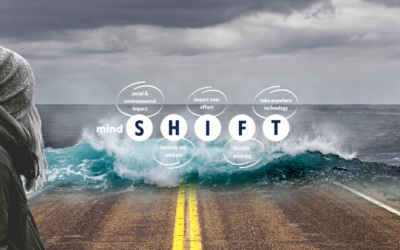This post is part 2 of 2, read part 1 Effective policy making in a mindSHIFTing landscape.
History shows that after a global shock event, the fear from it and the public outcry can actually force leaders to be bold in their policy response, even if they’re not directly involved or affected by the event.
Lesson from history: the airlines and flying post 9/11
The airline industry had no choice but to respond to the aftershock that 9/11 brought to the world in the form of a new era in security.
To understand how this played out, you can look at the response taking place in three areas of the shifting landscape; the international, national and personal, as airlines changed their processes in order to respond to the new policies that would guide how people travelled after 9/11.
1) International – travel and the mandated response to security
The security environment had shifted as countries now saw each other as bigger or littler threats or envisioned scenario threats they would now need to prevent from taking place. The consequence, in the west, was that airlines would have to do things differently because countries’ national governments said so.
Prior to Sept 11 (in the US context) airport identity checks, security screening and baggage check in were processes that were designed to take place invisibly, as to not interfere with an airlines revenue operations (i.e. revenue from flyers and drop off / pick up visitors spending at airport restaurants, bars and shops). After Sept 11 the shift to a policy of very visible security processes came about and the processes were led by governments setting the security policy.
2) National – adapting to travel requirements
As multiple countries’ airline terminals (in the western context) were forced by their governments to shift to new policies and put in place the procedures, for travellers the experience flying now meant having to plan ahead.
Some say the rules for leaving and entering countries even became stressful as planning ahead meant things people took for granted, such as how much time they’d give themselves to travel from where they were to the airport now changed, as a result of knowing that new requirements (the policies) made the security checkpoint lines longer.
3) Personal – behaviour change
The personal is where the shift really takes place and it’s at this level most people can ‘relate’, via the ‘lived experience’. For the airline industry, the security policies post 9/11 become evident in the processes that outline how travellers fly internationally (and to varying degrees nationally).
This meant that people would work out how to respond to the changing processes underway, and for example in just a matter of weeks after Sept 11 would soon work out that arriving at an aeroplane gate minutes before take off was no longer possible.
In the immediate aftermath of 9/11 policies around security screening, identity checks and baggage check in had changed forever. These policies were also shifted along by the introduction of new security measures (international and national levels) and deployment of new and improved technology in the first two decades of this millennium.
Thus those of us who travelled a lot, quickly became familiar with spending a couple of hours or even more in airport terminals and at gates at both departure and arrival destinations.
How we as humans personally responded to the changes was apparent in how we felt about flying and adapted our behaviours, accordingly. For example, walking through x-ray scanners became a personal issue of planning ahead in terms of what to wear while flying, to limit the amount of time spent going through security or being picked as the person in the queue that has to go through added checks such as a body pat down and explosive devices check. We also became more efficient at packing luggage for check in versus carry on and complied with the introduction of new baggage policies such as policies for liquids – clear bottles in clear toiletry bags or anything that could be a weapon; no metal nail files or razor blades.
Finally what the three areas of the shifting landscape just outlined shows, is that change is experienced by people at three levels – personal, national and international – it’s why remembering how leaders responded to past global shock events can’t be brushed aside. Those whose job it is to shape and make effective policies are better prepared to face future global shocks when they take into account the lessons from history.



